|
Not only are our chickens FREE RANGE, but we also allow our flock to reproduce naturally, meaning that eggs are selected to remain in the nesting box.
A hen that has natural brooding tendencies will soon take up the task of sitting on the eggs and claiming them as her own. She will become very protective of her eggs.
 21 days after the hen begins to sit on the eggs, the chicks will begin to hatch. The mother will naturally select the healthiest of her brood to survive. 21 days after the hen begins to sit on the eggs, the chicks will begin to hatch. The mother will naturally select the healthiest of her brood to survive.
Within a day they will be running around, learning all about what it means to be a chicken. Once out into the barnyard with the main flock they will still remain close to their mother.
At night she will return to the coup and roost with her chicks tucked under her wings. Within a week to two weeks they will be independent and start venturing further from their mother and exploring their environment.
As time goes on the chicks become more and more independent. Roosters and hens will easily become distinguished. (Roosters are fancier, with plumed tails frequent crowing) The new hens will not start laying eggs until they are 18-20 weeks old.
Yes it does cost a lot to feed baby chicks the first year that they do not produce eggs.
A good laying hen can lay eggs up to ten years, but most hens will decline in their egg production after two years of age.
Culling the flock and allowing new chicks to replenish the flock is a must to keep things healthy and productive.
Raising free-range chickens is not recommended for producers that want to make a lot of money as chickens will lay their eggs in all kinds of places except the coop. They are also more susceptible to predators, especially baby chicks at all stages.
Predators may include foxes, coyotes, hawks, owls, weasels, mink, fishers, skunks, raccoons and yes even the beloved farm dog or cat.
|
|
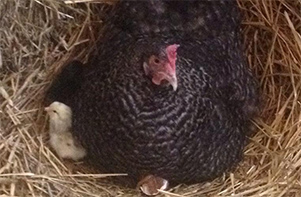
Mother hen attentive with newborn chicks in nesting box.
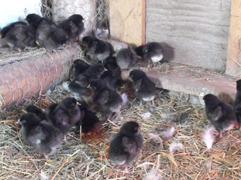
Day old chicks hatched from an incubator group together for warmth and companionship.
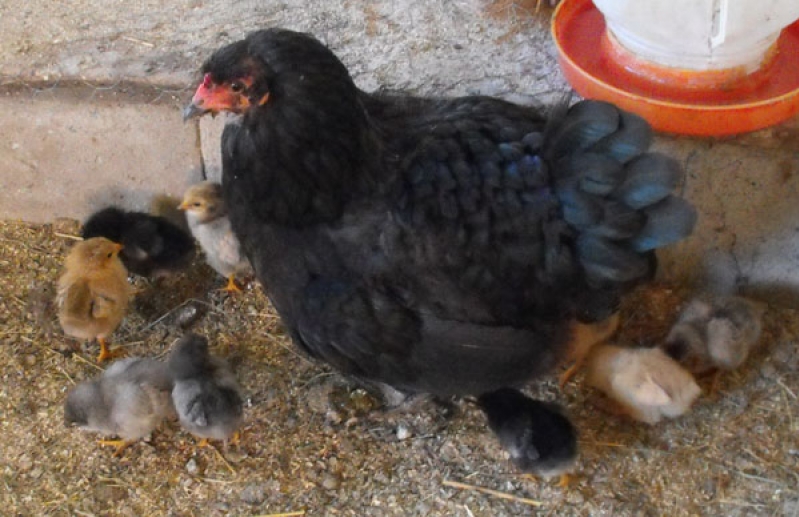
Mother Hen teaches chicks how to scratch and forage in the safety of the coop aviary.
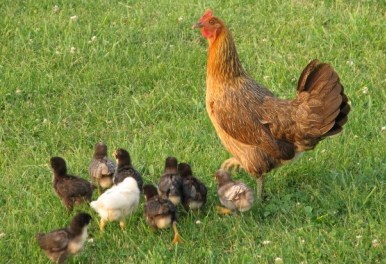
Mother Hen taking her chicks outdoors to forage.
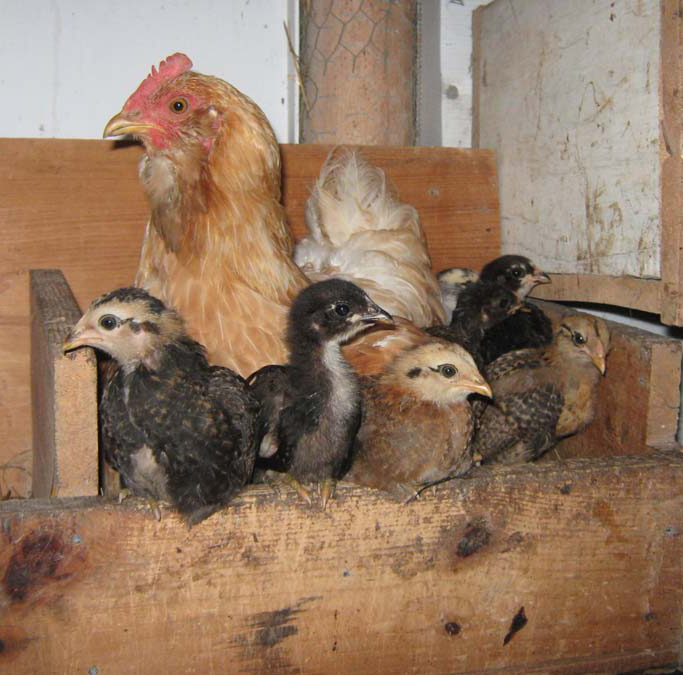
Mother Hen brings her babies inside the coop at night.
|